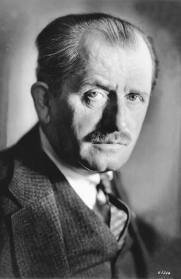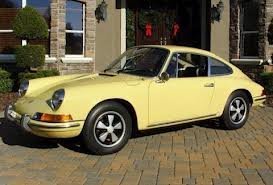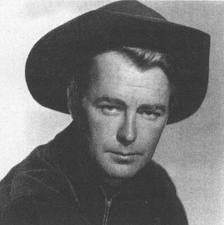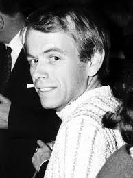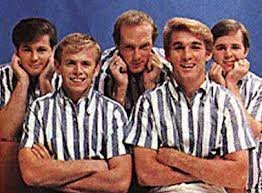The Beatles were an English rock band formed in Liverpool in 1960, comprising John Lennon, Paul McCartney, George Harrison, and Ringo Starr. They are regarded as the most influential band of all time and were integral to the development of 1960s counterculture and the recognition of popular music as an art form. Rooted in skiffle, beat, and 1950s rock 'n' roll, their sound incorporated elements of classical music and traditional pop in innovative ways. The band also explored music styles ranging from folk and Indian music to psychedelia and hard rock. As pioneers in recording, songwriting, and artistic presentation, the Beatles revolutionized many aspects of the music industry and were often publicized as leaders of the era's youth and sociocultural movements.
Led by primary songwriters Lennon and McCartney, the Beatles evolved from Lennon's previous group, the Quarrymen, and built their reputation by playing clubs in Liverpool and Hamburg over three years from 1960, initially with Stuart Sutcliffe playing bass. The core trio of Lennon, McCartney, and Harrison, together since 1958, went through a succession of drummers, including Pete Best, before inviting Starr to join them in 1962. Manager Brian Epstein molded them into a professional act, and producer George Martin guided and developed their recordings, greatly expanding their domestic success after signing with EMI Records and achieving their first hit, "Love Me Do", in late 1962. As their popularity grew into the intense fan frenzy dubbed "Beatlemania", the band acquired the nickname "the Fab Four". Epstein, Martin or another member of the band's entourage were sometimes informally referred to as a "fifth Beatle".
By early 1964, the Beatles were international stars and had achieved unprecedented levels of critical and commercial success. They became a leading force in Britain's cultural resurgence, ushering in the British Invasion of the United States pop market. They soon made their film debut with A Hard Day's Night (1964). A growing desire to refine their studio efforts, coupled with the challenging nature of their concert tours, led to the band's retirement from live performances in 1966. During this time, they produced records of greater sophistication, including the albums Rubber Soul (1965), Revolver (1966), and Sgt. Pepper's Lonely Hearts Club Band (1967). They also enjoyed further commercial success with The Beatles (also known as "the White Album", 1968) and Abbey Road (1969). The success of these records heralded the album era, as albums became the dominant form of record consumption over singles. These records also increased public interest in psychedelic drugs and Eastern spirituality and furthered advancements in electronic music, album art, and music videos. In 1968, they founded Apple Corps, a multi-armed multimedia corporation that continues to oversee projects related to the band's legacy. After the group's break-up in 1970, all principal former members enjoyed success as solo artists, and some partial reunions have occurred. Lennon was murdered in 1980, and Harrison died of lung cancer in 2001. McCartney and Starr remain musically active.
The Beatles are the best-selling music act of all time, with estimated sales of 600 million units worldwide. They are the most successful act in the history of the US Billboard charts, holding the record for most number-one albums on the UK Albums Chart (15), most number-one hits on the US Billboard Hot 100 chart (20), and most singles sold in the UK (21.9 million). The band received many accolades, including seven Grammy Awards, four Brit Awards, an Academy Award (for Best Original Song Score for the 1970 documentary film Let It Be), and fifteen Ivor Novello Awards. They were inducted into the Rock and Roll Hall of Fame in 1988, and each principal member was individually inducted between 1994 and 2015. In 2004 and 2011, the group topped Rolling Stone's lists of the greatest artists in history. Time magazine named them among the 20th century's 100 most important people.
The Quarrymen and name changes
In November 1956, sixteen-year-old John Lennon formed a skiffle group with several friends from Quarry Bank High School in Liverpool. They briefly called themselves the Blackjacks, before changing their name to the Quarrymen after discovering that another local group were already using the name. Fifteen-year-old Paul McCartney met Lennon on 6 July 1957, and joined as a rhythm guitarist shortly after. In February 1958, McCartney invited his friend George Harrison, then aged fifteen, to watch the band. Harrison auditioned for Lennon, impressing him with his playing, but Lennon initially thought Harrison was too young. After a month's persistence, during a second meeting (arranged by McCartney), Harrison performed the lead guitar part of the instrumental song "Raunchy" on the upper deck of a Liverpool bus, and they enlisted him as lead guitarist.
By January 1959, Lennon's Quarry Bank friends had left the group, and he began his studies at the Liverpool College of Art. The three guitarists, billing themselves as Johnny and the Moondogs, were playing rock and roll whenever they could find a drummer. Lennon's art school friend Stuart Sutcliffe, who had just sold one of his paintings and was persuaded to purchase a bass guitar with the proceeds, joined in January 1960. He suggested changing the band's name to Beatals, as a tribute to Buddy Holly and the Crickets. They used this name until May, when they became the Silver Beetles, before undertaking a brief tour of Scotland as the backing group for pop singer and fellow Liverpudlian Johnny Gentle. By early July, they had refashioned themselves as the Silver Beatles, and by the middle of August simply the Beatles.
If you want to read a lot more, go here: https://en.wikipedia.org/wiki/The_Beatles
- 1/2 cup milk
- 1 egg
- 1 1/2 cups biscuit baking mix
- 1 tablespoon minced onion
- 1 cup shredded Cheddar cheese, divided
- 2 tablespoons chopped fresh parsley
- 2 tablespoons butter, melted
- Preheat oven to 350º. Spray an 8- or 9-inch round pan.
- In a large bowl, combine milk and egg. Stir in biscuit mix, onion, 1/2 cup cheese, and parsley; mix well then pour into prepared pan. Sprinkle remaining 1/2 cup cheese over batter and pour melted butter over top.
- Bake 25 to 30 minutes, or until golden and a toothpick inserted in center comes out clean.
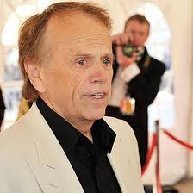
We all have memories of going to the movie theater. The excitement we felt waiting in anticipation for our favorite movie star to appear on the screen was exciting. No movie was complete without a box of fresh buttered popcorn and our favorite drink in hand. If we were lucky, we were able to get some candy, too. On National Cinema Day, everyone is encouraged to go to a movie and relive that special feeling of seeing your favorite movie star on the big screen.
Behind the Scenes
Movies have been around since the late 1800s. Louis Le Prince receives credit for coming up with the idea of moving images on a screen. His Praxinoscope invention was a single-lens camera that had the ability to take 12 frames per second. Le Prince was in the process of patenting his invention when he was killed by an unknown person. Even though he met his demise, Le Prince was the inspiration for an industry that awes us just as much as the original movies did.
Who invented motion pictures? Thomas Edison receives the credit for inventing the first device to show a motion picture. In fact, Edison would be the first to commercially sell his kinetoscope invention even though he was skeptical about his idea. Interestingly, the device would be used in public kinetoscope parlors for public view. By 1915, small theaters were set up in storefronts to view a motion picture known as nickelodeons.
Early Motion Pictures
- 1891 – Dickson Greeting
- 1893 – Blacksmith Scene
- 1895 – The Execution of Mary Stuart
- 1896 – Le Manoir du diable (The House of the Devil)
- 1902 – A Trip to the Moon (1902)
Motion pictures have come a long way since the beginning. As technology has improved, so has the production of what we view on the screen. During the early years of movie production, the audience was awed by the ability to view moving people on the screen. Movies were in black and white and had no sound. Most of the time, live music was playing within a theater as the film moved on the screen. Today, movie goers expect to see amazing graphics, realistic stunts, and hear astounding music scores.
CINEMA CELEBRATIONS
- Go to the movie with family and friends.
- Buy movie tickets as a gift.
- Rent a movie theater for a private party viewing.
- Research the history of the movies.
- Purchase movie tickets for $3 on National Cinema Day.
THROUGH THE LENS
This celebration is being promoted by The National Association of Theater Owners and The Cinema Foundation to encourage people to head to the theater. The foundation is offering special pricing of $3 movies at participating theaters as a way to celebrate today. If you would like more information about a participating theater in your area, visit www.nationalcinemaday.org.








